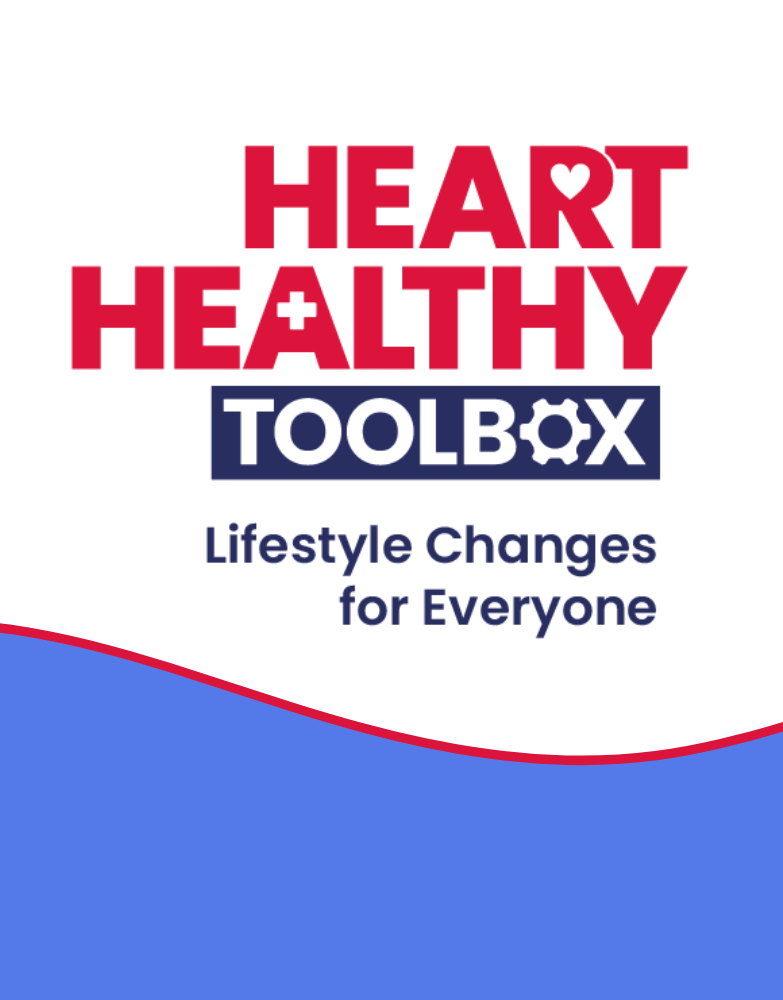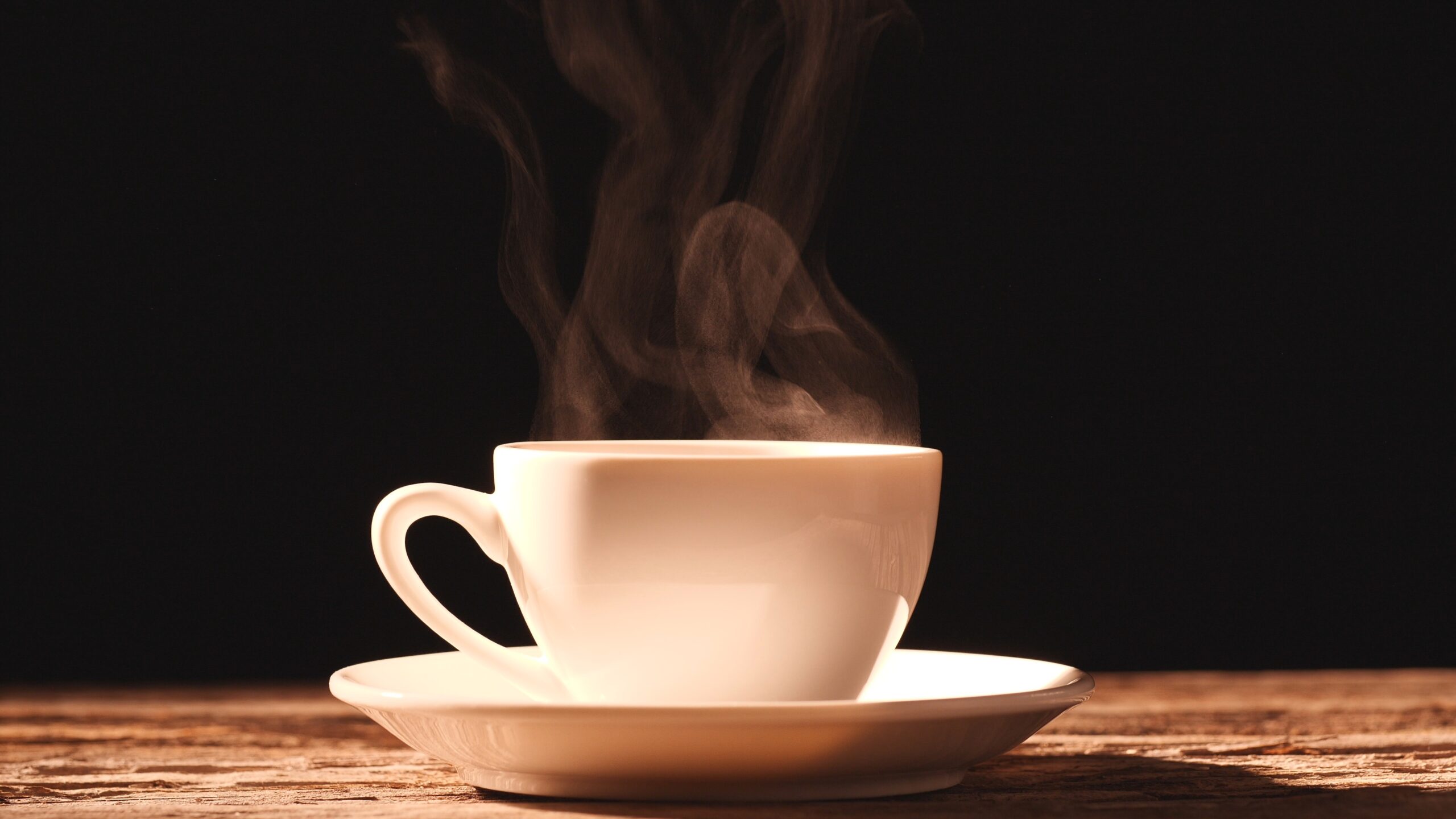Why Caffeine Can Disrupt Sleep and Harm Your Health
The American Heart Association recently added sleep as one of the Life Essential 8 behaviors.1 Adequate sleep has been proven to promote healing and lower risk for chronic diseases, such as cardiovascular disease.1 Many people have trouble falling asleep or staying asleep at night, thus compromising their cardiovascular health.2 One habit related to sleep may be caffeine consumption as it may be keeping someone awake despite not consuming it at night.3 That’s because caffeine has a longer-lasting effect than one may think.3
How Caffeine Affects Sleep Quality
Caffeine disrupts deep (restorative) sleep and the ability to fall asleep, which cuts down on total sleep time.2,3 Insomnia has negative health effects, such as overeating and binge eating, weight gain, and obesity.2 According to a study by the American Cancer Society, insufficient sleep can shorten your life.2 Causes of death associated with sleep duration include heart disease, stroke, and breast/colon cancer.2
Caffeine Half-Life Explained: Why It Stays in Your System for Hours
Caffeine has a half-life of five to six hours.3 In other words, it takes five to six hours for the amount of caffeine in your body to be reduced to exactly one-half of its concentration.3 This means the amount of caffeine remaining in your body after six hours is equal to the amount you have excreted.3
How Caffeine Builds Up in Your Body
The 6-hour half-life does not take into consideration variables that can influence how fast or slow a person metabolizes caffeine.3,4 Due to the half-life of caffeine, caffeine starts accumulating in your body when you consume it throughout the day.3,4
For example, if you drink two cups of coffee every day at 8:00 AM, by Day 3 at 2:00 AM nearly 45 g of caffeine could still be in your system. To compound the caffeinated effect, if you drink another cup of coffee at 2:00 PM as an afternoon pick-me-up, by Day 3 at 2:00 AM, nearly 90 gm of caffeine could still be in your system. That’s nearly the amount of caffeine in a 16-oz Frappuccino® — a clue as to why someone may not be able to sleep well.3,4
Factors That Influence How Your Body Metabolizes Caffeine

The half-life of caffeine is not a fixed number and can vary based on the individual.4,5 Variables include:4,5
- Weight
- Body mass
- Sex
- Age: Caffeine half-life generally increases with age, so it takes longer to leave your system. That’s why caffeine may affect your sleep more than when you were younger.4,5
- Genetic factors: Some people may lack the gene — or the gene may be defective — that influences caffeine metabolism.4,5
- Liver function: Caffeine is processed in the liver. The half-life of caffeine can be up to 96 hours if you have liver disease and even as high as 168 hours in patients with alcoholic hepatic disease.4,5,6
- Pregnancy: Caffeine half-life can increase up to 14 hours in later stages of pregnancy.4,5
- Smoking: Smokers clear caffeine from the body faster than non-smokers, which may explain why smokers tend to consume more coffee.6
- Concurrent medication
Common Sources of Caffeine in Food, Drinks, and Medications
Caffeine can be in the form of another drink, food, or even medication.4
Caffeine Content in Common Foods7
| Food/Drink | Serving Size | Caffeine Content |
|---|---|---|
| Green Tea | 8 oz | 20-30 mg |
| Caffee, short | 8 oz | 110-175 mg |
| Double Espresso Shot | 2 oz | 60-100 mg |
| Extra Strength Pain Reliever | Per does (2 tabs) | 130 mg |
Chocolate (1.5 oz)7
- 11% cacao (milk), 9 mg
- 43% cacao (semi-sweet), 33 mg
- 50% cacao, 43 mg
- 60% cacao (bittersweet), 51 mg
- 70% cacao, 60 mg
- 80% cacao, 68 mg
- 90% cacao, 75 to 80 mg
- 100% cacao, 85 mg
Other Caffeinated Foods7
- Hot chocolate (8 to 16 oz), 10 to 25 mg
- Caffeinated soft drinks (12 oz), 5 to 75 mg
- Decaffeinated coffee, (8 oz), 5 mg
- Energy drinks (2 to 16 oz), 5 to 245 mg
Caffeine Content in Common Over-the-Counter Drugs7
- Alka-Seltzer Wake-up Call®, 65 mg
- Anacin® maximum strength, 32 mg
- Appetite-control pills, 100 to 200 mg
- Dexatrim® appetite suppressant, 200 mg
- Diurex® water pills, 50 mg
- Dristan® capsules, 16 mg
- Excedrin® (2 tablets), 130 mg
- Midol® menstrual maximum strength caplets, 60 mg
- NoDoz®, 200 mg
- NoDoz®, maximum strength, 200 mg
- Vanquish® caplets, 33 mg
- Vivarin®, 200 mg
Caffeine Content in Common Prescription Drugs7
- Cafergot® suppositories (migraine headache treatment), 100 mg
- Fiorinal® capsules/tablets (headache pain reliever), 40 mg
- Norgesic® (muscle relaxant), 30 mg
- Triaminacin® (acetaminophen) with codeine tablets, 30 mg
How Much Caffeine is Too Much?8-10
For optimum health, limit your caffeine intake to:
- 400 mg/day or less (as recommended by the FDA)
- 250 mg/day or less if you’re over 65 years old (1.5 cups coffee = 150 to 260 mg)
- 0 mg/day if you’re anxious, agitated and/or depressed
How to Reduce Caffeine for Better Sleep and Heart Health
According to the American Heart Association, the results linking high caffeine intake with heart disease are conflicting possibly due to the way the studies were performed and to a varying intake of dietary fats and cholesterol.9,11,12 Per a study of nearly 46,000 American men ages 40 to 75 years old and no history of cardiovascular disease, there was no conclusive evidence that linked caffeine consumption with increased risk of heart attack, need for coronary-artery bypass grafting or angioplasty, and risk of stroke.9-12
If your patients are experiencing sleep difficulties, advise them to carefully evaluate their dietary habits, fluid intake, and review both prescribed and over-the-counter medications. A practical step to improve sleep quality is to assess whether caffeine consumption may be contributing to the issue. Encourage patients to gradually reduce their caffeine intake, particularly in the afternoon and evening, as excessive caffeine can disrupt sleep patterns and exacerbate cardiovascular conditions.13,14
References
- Lloyd-Jones DM, Allen NB, Anderson CA, et al. Life’s essential 8: updating and enhancing the American Heart Association’s construct of cardiovascular health: a presidential advisory from the American Heart Association. Circulation. 2022;146(5). doi:10.1161/CIR.0000000000001078
- Watson NF, Badr MS, Belenky G, et al. Recommended Amount of Sleep for a Healthy Adult: A Joint Consensus Statement of the American Academy of Sleep Medicine and Sleep Research Society. Sleep. 2015;38(6):843-844. doi:10.5665/sleep.4716
- Riemann D, Baglioni C, Bassetti C, et al. European Guideline for the Diagnosis and Treatment of Insomnia. J Sleep Res. 2017;26(6):675-700. doi:10.1111/jsr.12594
- Temple JL, Bernard C, Lipshultz SE, et al. The Safety of Caffeine Consumption in Children and Adolescents. Nutr Rev. 2017;75(3):180-196. doi:10.1093/nutrit/nuw050
- Mitchell DC, Knight CA, Hockenberry J, et al. Beverage Caffeine Intakes in the U.S. Food Chem Toxicol. 2014;63:136-142. doi:10.1016/j.fct.2013.10.042
- Dhawan A, Sokol RJ. Caffeine Clearance: A Useful Quantitative Marker of Liver Function in Children with Chronic Liver Disease. J Pediatr Gastroenterol Nutr. 2018;66(2):e48-e53 . doi:10.1097/MPG.0000000000001721
- Jodynis-Liebert J, Nowicki M, Murias M, et al. Caffeine Clearance as a Marker of Liver Function in Patients with Chronic Liver Disease. Pharmacol Rep. 2019;71(3):525-531. doi:10.1016/j.pharep.2019.02.005
- Benowitz NL, Hukkanen J, Jacob P III. Nicotine Chemistry, Metabolism, Kinetics, and Biomarkers. Handb Exp Pharmacol. 2009;192:29-60. doi:10.1007/978-3-540-69248-5_2
- Mitchell DC, Knight CA, Hockenberry J, et al. Beverage Caffeine Intakes in the U.S. Food Chem Toxicol. 2014;63:136-142. doi:10.1016/j.fct.2013.10.042
- Wikoff D, Welsh BT, Henderson R, et al. Systematic review of the potential adverse effects of caffeine consumption in healthy adults, pregnant women, adolescents, and children. Food Chem Toxicol. 2017;109(Pt 1):585-648. doi:10.1016/j.fct.2017.04.002.
- Ding M, Bhupathiraju SN, Satija A, et al. Long-Term Coffee Consumption and Risk of Cardiovascular Disease: A Systematic Review and a Dose-Response Meta-Analysis of Prospective Cohort Studies. Circulation. 2014;129(6):643-659. doi:10.1161/CIRCULATIONAHA.113.005925
- van Dam RM, Hu FB, Willett WC. Coffee, Caffeine, and Health. N Engl J Med. 2020;383(4):369-378. doi:10.1056/NEJMra1816604
- Clark I, Landolt HP. Coffee, caffeine, and sleep: A systematic review of epidemiological studies and randomized controlled trials. Sleep Med Rev. 2017;31:70-78. https://doi.org/10.1016/j.smrv.2016.01.006
- O’Keefe JH, Bhatti SK, Patil HR, DiNicolantonio JJ, Lucan SC, Lavie CJ. Effects of habitual coffee consumption on cardiometabolic disease, cardiovascular health, and all-cause mortality. J Am Coll Cardiol. 2013;62(12):1043-1051. https://doi.org/10.1016/j.jacc.2013.06.035
Published on
May 19, 2025
Related Resources








